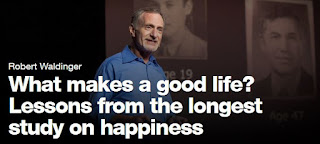The Annual Kennedy's Disease Conference was held in Chicago this year. The
post-conference newsletter is now available for reading (PDF) online. There are several excellent articles on current research as well as plenty of conference news. I have copied a couple of the articles that might be of interest.
____________________________
Research News at the 2015
KDA Conference
Ed Meyertholen, Ph.D.
KDA Board Member, and Scientific Review Board Member
Assistant Dean, Georgetown College, Georgetown University, Washington, DC
The annual conference of the Kennedy’s Disease Association was held
this past October in Chicago. We are lucky in that we have a group of researchers
that not only are dedicated to finding a treatment for KD but also able to find
time to present their most recent research at the meeting. In addition, our
meetings also allow for the interaction between the researchers and the
conference attendees. This is by far the most rewarding part of the conference
for me personally.
As is typical, researchers who came to the meeting were from most of
the labs in the USA and Canada that make major contributions to KD research as
well as some from across the pond. The research described at the meeting is
generally unpublished work and as a result, is not usually ready for broad
distribution. For me, however, one of the more interesting and encouraging
developments this year actually was not a part of our conference and did not
even deal with KD but its close cousin, Huntington’s Disease (HD). A new
clinical trial using something called anti-sense oligonucleotides (ASO) had
started this summer. Without going into excruciating details, ASO’s prevent the
production of the protein that causes HD and as a result, the symptoms of HD in
mice were reduced with the injection of this ASO. The success of these
experiments in mice led to the formation of the clinical trial to use ASO’s in
humans. Experiments using ASO’s against the androgen receptor (the protein
affected in KD) in mice have also shown to be effective in relieving symptoms
of KD. Thus, if this treatment works in HD patients, it should work in KD as
well.
The KDA Conference is also the site of the notification and
presentation of the research grants funded by the KDA. This year, thanks to
your donations and fund raisers two grants were awarded at the conference, one
to Dr. Miltiadis Paliouras (principle investigator) and Dr. Lenore Beitel
(co-applicant) who are Assistant Professors at McGill University; and the other
to Dr Constanza Cortes, a post-doctoral researcher in Al La Spada’s lab at
UC-San Diego. The competition for the grants was extremely fierce this year as
a record number of proposals were submitted – all of them of excellent quality.
____________________________
Exercise Research
Joseph A
Shrader, PT, C.Ped
Senior Clinical and Research Physical Therapist, Clinical Research Center, NIH
Recent evidence suggests that functional exercises aimed
at improving functional tasks such as

sitting up, rolling over, sit-to-stand,
and stepping up an 8-inch step were well tolerated by persons with spinal and bulbar
muscular atrophy when supervised by rehabilitation and/or nursing
professionals. Overall, strength, balance, function, and quality of life did
not differ between those who received the exercise versus stretching (control
group), however, those with relatively low baseline function improved their functional
profile and those with relatively high baseline function improved their general
activity level, compared with the control group. More research is needed to
help optimize exercise intensity, mode, frequency and duration for individuals
with KD. General recommendations for people with KD include attempting to
incorporate daily physical activity into your lifestyle, along with good nutrition
and sleep habits. If you experience falls, fear of falling, leg weakness,
requirement of assistance or assistive devices for standing and walking, it is recommended that you first be examined
by your primary doctor, neurologist, or physiatrist to discuss
contraindications and exercise goals. It is also recommended that exercises be
initially prescribed and monitored for appropriate post-exercise recovery by a
physical therapist, until a safe and sustainable self-directed program can be
assured.
NIH does not endorse or recommend any
commercial products, processes, or services. The views and opinions of NIH authors do not necessarily state or reflect those of the U.S. Government, and they may not be used for advertising or product endorsement purposes.




